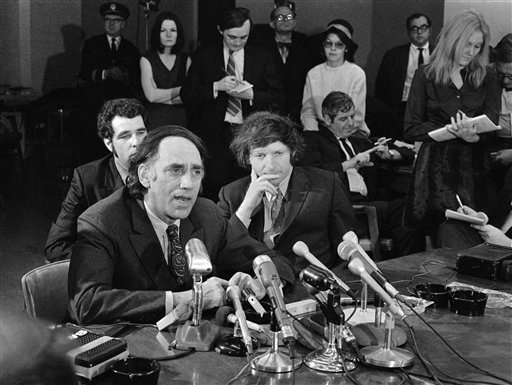William Moses Kunstler (1919–1995) was a self-described radical lawyer, who thrived on representing controversial clients, such as civil rights agitator H. Rap Brown, expelled congressman Adam Clayton Powell Jr., and political and social activist Abbie Hoffman. Kunstler is perhaps best known for his defense in the 1960s of liberal rabble rousers Hoffman, Jerry Rubin, and the other defendants in the Chicago Seven case.
Born in New York City, Kunstler obtained his undergraduate degree from Yale University in 1941 and his law degree from Columbia University in 1949. He later formed a law firm with his brother, Michael, and law school classmate Arthur Kinoy. He was cofounder in 1966 of the nonprofit Center for Constitutional Rights.
Kunstler argued six First Amendment cases before the Supreme Court
Kunstler argued six cases before the Supreme Court, including the First Amendment disputes in Texas v. Johnson (1989), United States v. Eichman (1990), and Ward v. Rock against Racism (1989).
In Texas v. Johnson and United States v. Eichman, Kunstler successfully argued that Texas and federal laws criminalizing flag burning violated the First Amendment right to engage in political dissent.
In Ward, he was less successful in opposing regulations that New York City was imposing on rock concerts in Central Park; the Court decided that these were reasonable time, place, and manner restrictions.
Kunstler wrote books on a variety of topics, ranging from the death penalty to civil liberties lawyers to his autobiography (with Sheila Isenberg) My Life as a Radical Lawyer (1994).
David L. Hudson, Jr. is a law professor at Belmont who publishes widely on First Amendment topics. He is the author of a 12-lecture audio course on the First Amendment entitled Freedom of Speech: Understanding the First Amendment (Now You Know Media, 2018). He also is the author of many First Amendment books, including The First Amendment: Freedom of Speech (Thomson Reuters, 2012) and Freedom of Speech: Documents Decoded (ABC-CLIO, 2017). This article was originally published in 2009.

